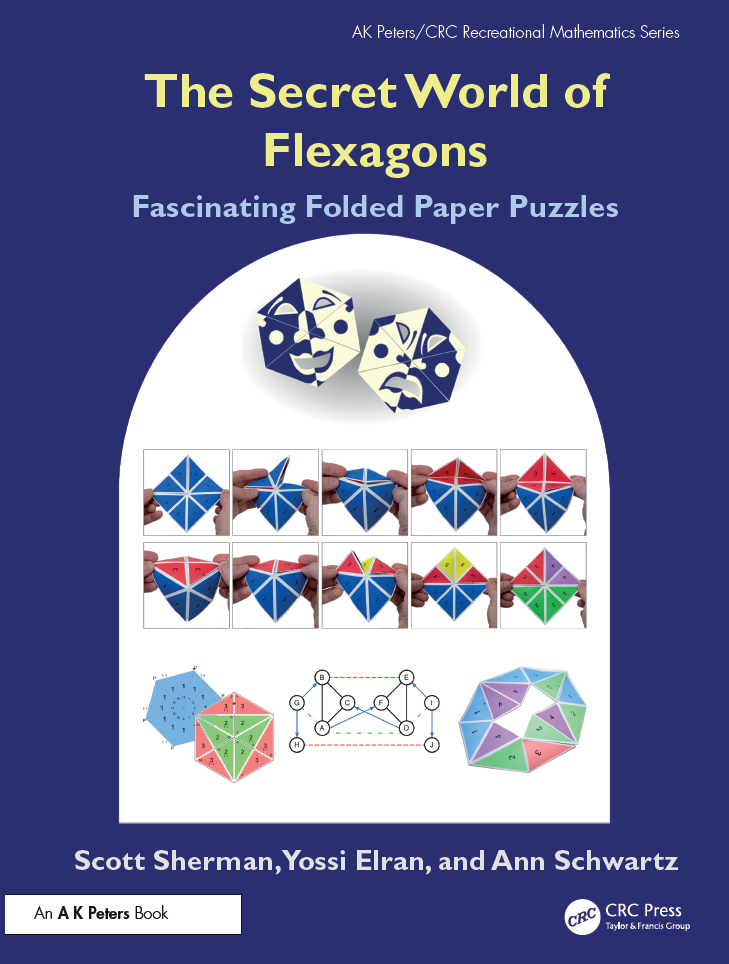
|
|
Flexagons are an interesting form of
paper folding. Starting from a string of connected triangles, squares
or other polygons, you fold it into a hexagon, a square or one of many
other possible shapes. From here there are various ways you can fold,
or flex, it to uncover previously hidden faces. It can make for an
interesting puzzle to figure out how to reach all the faces.
|

|
|
Here's my talk at
the 2018 Gathering for Gardner where I show a counter example to Fermat's Last Theorem.
Sure you have to break a rule or two, but it's still surprising.
Leftins, or "left infinite"
numbers are an interesting generalization of our numbering system.
|

|
|
There are an amazing number of different shapes that make
fair dice beyond cubes and boring old D&D dice.
I describe the different kinds of fair dice
and even have some for sale on Shapeways.
|

|
|
After my trip to New Zealand to study
dolphins with Earthwatch,
I wrote a program called Phineus to help
match pictures of dolphins for tracking purposes.
|

|
|
A particle automata
is similar to a cellular automata, but the rules
address moving particles rather than fixed cells.
|






